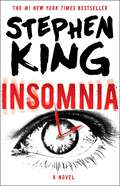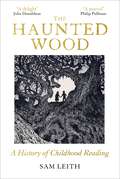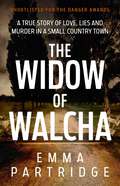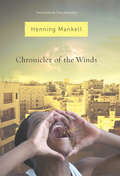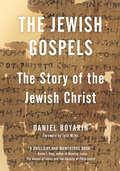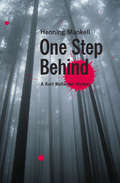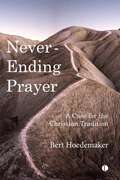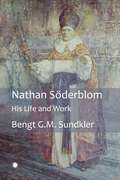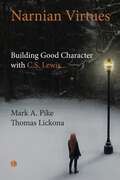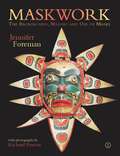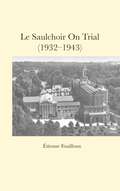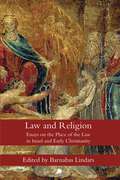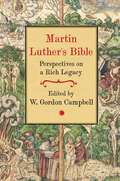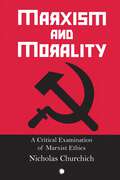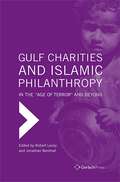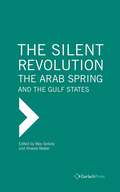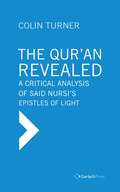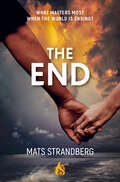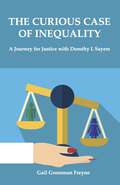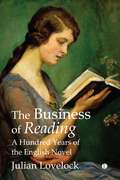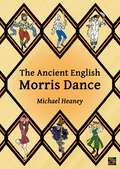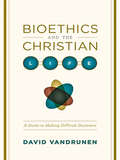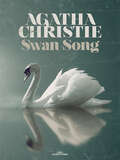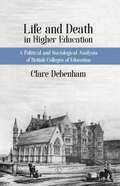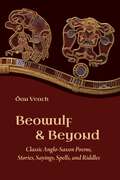- Table View
- List View
Insomnia (Signet Fiction #Vol. 102)
by Stephen KingA #1 national bestseller—“A yarn so packed with suspense, romance, literary reference, fascinating miscellaneous knowledge, and heart that only Stephen King could have written it. Marvelous—that is, full of marvels” (Booklist).Since his wife died, Ralph Roberts has been having trouble sleeping. Each night he wakes up a bit earlier, until he’s barely sleeping at all. During his late night walks, he observes some strange things going on in Derry, Maine. He sees colored ribbons streaming from people’s heads, two strange little men wandering around town after dark, and more. He begins to suspect that these visions are something more than hallucinations brought on by lack of sleep. There’s a definite mean streak running through this small New England city; underneath its ordinary surface awesome and terrifying forces are at work. The dying has been going on in Derry for a long, long time. Now Ralph is part of it…and lack of sleep is the least of his worries. Returning to the same Maine town where It took place, a town that has haunted Stephen King for decades, Insomnia blends King’s trademark bone-chilling realism with supernatural terror to create yet another masterpiece of suspense.
The Haunted Wood: A History of Childhood Reading
by Sam Leith*A Sunday Times, Irish Times, Financial Times, Independent, Daily Mail, TLS, Economist, Prospect, Evening Standard and New Statesman Book of the Year 2024* Can you remember the first time you fell in love with a book? The stories we read as children matter. The best ones are indelible in our memories; reaching far beyond our childhoods, they are a window into our deepest hopes, joys and anxieties. They reveal our past – collective and individual, remembered and imagined – and invite us to dream up different futures. In a pioneering history of the children&’s literary canon, The Haunted Wood reveals the magic of childhood reading, from the ancient tales of Aesop, through the Victorian and Edwardian golden age to new classics. Excavating the complex lives of our most beloved writers, Sam Leith offers a humane portrait of a genre and celebrates the power of books to inspire and console entire generations. *** 'A MARVEL' PHILIP PULLMAN 'A DELIGHT' JULIA DONALDSON 'GLORIOUSLY ENTERTAINING' TOM HOLLAND
The Widow of Walcha: A true story of love, lies and murder in a small country town
by Emma PartridgeThe Widow of Walcha is a shocking true story about death, love and lies in the small NSW town of Walcha.Shortlisted, 2023 Danger Awards, Nonfiction category All farmer Mathew Dunbar ever wanted was to find love and have a family of his own. That&’s why, just months after meeting Natasha Darcy, the much-loved grazier didn&’t hesitate to sign over his multi-million-dollar estate to her. When Mathew died in an apparent suicide soon afterwards, in a stranger-than-fiction twist, Natasha's estranged husband – who she was once charged with trying to kill – was the first paramedic on the scene. Journalist and author Emma Partridge travelled to the cool and misty town of Walcha in the NSW Northern Tablelands shortly after Mathew Dunbar's death, drawn by the town's collective worry that Natasha was going to get away with murder. Partridge spent months researching the case, interviewing Mathew&’s friends, family and Natasha herself in an attempt to uncover her sickening web of lies and crimes.The Widow of Walcha is about one of the most extraordinary criminal trials in Australia&’s history and reveals Natasha&’s sickening crimes against those she claimed to love, fuelled by her obsession with money.
Chronicler of the Winds: A Novel
by Henning MankellFrom the bestselling author of the Kurt Wallander Mysteries: An &“uplifting . . . grittily realistic&” fable about war-torn Africa and a mystical orphan boy (The New York Times). A single gunshot cracks the silence of a hot African night. On the rooftop of a local theater company, a ten-year-old boy slowly dies of bullet wounds. He is Nelio, a leader of street kids, rumored to be a healer and a prophet, and possessed of a strangely ancient wisdom. One of the millions of poor people &“forced to eat life raw,&” Nelio refuses to be taken to the hospital. Instead, he tells the unforgettable story of his life to a sole witness. Over the course of nine nights, a baker named José Antonio Maria Vaz listens as bandits cruelly raze Nelio&’s village, propelling him to join the legions of abandoned children living in the streets. A grand act of imagination intended to prove to his comrades that existence must be more than mere survival, cuts Nelio&’s life short. As the tale unfolds, José is forever changed. He becomes the &“Chronicler of the Winds&”, vowing to reveal Nelio&’s magical words to all who will listen. Shortlisted for the Nordic Council Prize for Literature and nominated for the Swedish Publishers Association&’s August Prize, Chronicler of the Winds is a beautifully crafted novel that is a testament to the power of storytelling itself. &“Mankell writes eloquently of the realities of poverty and violence without becoming sugary or didactic. . . . An expert craftsman&” (The Observer).
The Jewish Gospels: The Story of the Jewish Christ
by Daniel Boyarin&“[A] fascinating recasting of the story of Jesus.&” —Elliot Wolfson, New York University In July 2008, a front-page story in the New York Times reported on the discovery of an ancient Hebrew tablet, dating from before the birth of Jesus, which predicted a Messiah who would rise from the dead after three days. Commenting on this startling discovery at the time, noted Talmud scholar Daniel Boyarin argued that &“some Christians will find it shocking—a challenge to the uniqueness of their theology.&” Guiding us through a rich tapestry of new discoveries and ancient scriptures, The Jewish Gospels makes the powerful case that our conventional understandings of Jesus and of the origins of Christianity are wrong. In Boyarin&’s scrupulously illustrated account, the coming of the Messiah was fully imagined in the ancient Jewish texts. Jesus, moreover, was embraced by many Jews as this person, and his core teachings were not at all a break from Jewish beliefs and teachings. Jesus and his followers, Boyarin shows, were simply Jewish. What came to be known as Christianity came much later, as religious and political leaders sought to impose a new religious orthodoxy that was not present at the time of Jesus&’s life. In the vein of Elaine Pagels&’s The Gnostic Gospels, here is a brilliant new work that will break open some of our culture&’s most cherished assumptions. &“A brilliant and momentous book.&” —Karen L. King, Harvard Divinity School &“Raises profound questions . . . This provocative book will change the way we think of the Gospels in their Jewish context.&” —John J. Collins, Yale Divinity School &“It&’s certainly noteworthy when one of the world&’s leading Jewish scholars publishes a book about Jesus . . . Extremely stimulating.&” —Daniel C. Peterson, The Deseret News
One Step Behind: The Dogs Of Riga; The Man Who Smiled; One Step Behind (The Kurt Wallander Mysteries #7)
by Henning MankellSweden&’s most tenacious detective races to unlock the twisted logic behind a madman&’s crimes: &“Lyrical, meticulous, and stunningly suspenseful&” (St. Petersburg Times). On Midsummer&’s Eve, three friends gather in a secluded meadow in Sweden. In the beautifully clear twilight, they don eighteenth-century costumes and begin a secret role-play. But an uninvited guest soon brings their performance to a gruesome conclusion. His approach is careful; his aim is perfect. Three bullets, three corpses. And his plans have only just begun to take shape. Meanwhile, Inspector Kurt Wallander is just back from vacation. Constantly fatigued, he soon learns his health is at risk—but there&’s no time for rest when a fellow officer is murdered. Wallander soon discovers that the two grisly crimes are connected. A serial killer is on the loose, and the only lead is a photograph of a strange woman no one in Sweden seems to know. Forced to dig into the personal life of a trusted colleague, Wallander steps into a nightmare worse than any he could have imagined. Can he find his way out of the darkness before it&’s too late? A pulse-pounding thriller and an incisive investigation into the mysteries of human nature, One Step Behind is &“typical of the dense, intricate intelligence that Mankell brings to detection and crime writing&” (The Washington Post Book World).
Never-Ending Prayer
by Bert HoedemakerIs Christian 'tradition' to be maintained as the absolute body of truth? Can it be used selectively depending on the preferences of individual believers? What can 'religious truth' possibly mean in our age of opinions and overwhelming cultural diversity? These are unsettling questions for Christians, their effect aggravated by our daily encounter with non-western cultures and non-Christian religions, and by the increasing presentation of secularism and atheism as the 'normal' way of life. In Never-Ending Prayer, Bert Hoedemaker outlines the continuing importance of tradition, while showing that in facing these challenges our understanding of tradition needs a 'reset'. Drawing on his own experiences of world Christianity, he reconstructs the Christian tradition in such a way that it no longer defines and defends itself as a specific body of concepts and practices over against 'the world' but as a living community originating in and remaining in interaction with humanity's permanent struggles. It is presented as a system of religious imagination in which prayer is the driving force and reconciliation is seen as the destination of humankind
Nathan Söderblom
by Bengt G.M. SundklerNathan Soderblom (1866-1931), was not only a profoundly influential figure in Swedish church history, but also one of the great pioneers of the modern ecumenical movement. Elected Archbishop of Uppsala, the head of the Lutheran church in Sweden, in 1914, he was a ceaseless advocate for peace during the first world war. His collaboration with George Bell laid the foundations for intercommunion between the Church of Sweden and the Church of England. Finally, in the year before he died, he was awarded the Nobel Peace Prize. Despite this, until this landmark biography he was largely neglected by historians, the subject of only a few partial studies. In Nathan Soderblom: His Life and Work, Bengt Sundkler corrects this, with new analysis of Soderblom's meticulously preserved correspondence and interviews with his family, friends and former students. The resulting image is of a man deeply committed to his leadership of ecumenical projects, most significantly his movement of 'Life and Work', btu also of a complex and fascinating personality.
Narnian Virtues
by Thomas Lickona Mark A. PikeIn this engaging and practical book Mark Pike and Thomas Lickona show how C.S. Lewis' wisdom for nurturing good character, and his much-loved Chronicles of Narnia, inspire us to virtue. Drawing upon the Judeo-Christian virtues of faith, hope and love and 'Narnian' virtues such as courage, integrity and wisdom, they present an approach to contemporary character education validated by recent research. An introduction to C.S. Lewis' thought on character and faith is followed by practical examples of how to use well-known passages from the Narnia novels as a stimulus for rich character development at home and in the classroom.
Maskwork
by Jennifer ForemanThe practice of mask-wearing has a long history, even becoming mandatory in times of global crisis. In this useful contribution to the performing arts curriculum, Maskword: The Background, Making and Use of Masks takes a new look at the creative and timeless art of masks and mask-making, while also exploring their cultural anthropology from prehistory to the present day. Drawing on her extensive experience in professional theatre and running workshops, Foreman promotes the life-affirming qualities of masks, providing us with an invaluable resource for artists and teachers, as well as parents seeking activities for children at home. Eight themed projects use photographs to document masks and mask-making techniques, with each one offering practical advice and design ideas; materials are inexpensive and easy to acquire. With photographs by Richard Penton.
Le Saulchoir On Trial
by Étienne FouillouxFebruary 1942. The world is on fire and bloody. The United States has just entered the war following the aggressive attack on their air and naval base at Pearl Harbour at the beginning of December. The German troops besiege Leningrad and are fighting before Moscow: The Wannsee Conference of 20 January has just established the logistics of the "final solution" for Jews under the ascendancy of the Third Reich. The Japanese seize Singapore on 15 February... No one seems capable of stopping the destructive march of the totalitarian regimes. At the Vatican, however, proceedings follow their course as if nothing was any different: a decree of the Holy Office places on the Index of Prohibited Books two works concerning the definition of theology, outsiders to the noise and violence of a war henceforth worldwide: the Essai sur le probleme theologique (Essay on the theological problem] by the Belgian Dominican Louis Charlier, published in 1938, and the small booklet Uneecole de theologie: le Saulchoir [A school of theology: the Saulchoir], by his French colleague Marie- Dominique Chenu, published privately at the end of the previous year. This book details a ten year history. Etienne Fouilloux gives us here the story of a forgotten or misunderstood episode in the history of the Catholic Church, still struggling with the ghosts of Modernism. Vatican I is still far away and yet it is the whole issue of the renewal of theology that this fascinating book by a great historian highlights.
Law and Religion
by Barnabas LindarsThe place of the Law and its relationship to religious observance and faith is a contested topic in the study of both the Old and New Testament. In Law and Religion, members of the Erhardt Seminar group provide an insight into the debate, probing key topics and offering new contributions to the subject. Their essays are grouped into three sections, focussing in turn on the Law's place in Israelite religion, in the Jesus tradition, and in Paul and the Apostolic tradition. Thus, the foundation of the connection between law and religion in ancient Israel is explored, along with the decisive influence of the Deuteronomic reform and the radical new understanding now emerging of the later development in Judaism of the New Testament Period. So, also, the contemporary challenge to the conventional picture of Jesus and the Law is addressed, the attitude of Paul is shown in new light, and post-Pauline developments are examined. Readers will find in this symposium a refreshing breadth of opinion on a debate that spans the gamut of disciplines within Biblical studies.
Martin Luther’s Bible
by W. Gordon CampbellMartin Luther's 1522 September Testament marked a watershed in Bible translation, making Scripture available to ordinary German people in their own tongue and sparking similar efforts across Europe. Building on the nascent trend of vernacular Bible translations in the early sixteenth century, Luther's translation quickly became definitive linguistically, theologically and culturally, especially once the complete Bible was published in 1534, with production of New Testaments and Bibles in French, English and other languages keeping pace. Luther and his associates constantly revised and improved their methodology for translation and interpretation over a quarter-century of Bible publishing - efforts that helped shape Bible translation, reading and exegesis, for scholars and ordinary Christians alike, well beyond his lifetime. Martin Luther's Bible commemorates the September Testament, exploring the Wittenberg Bible project in its context and tracing aspects of its legacy in Europe and the wider world, from the sixteenth century to the present day. Essays from a range of leading experts draw upon the 2022 Martin Luther: Bible Translator, Illustrator and Publisher International Conference held at Union Theological College, Belfast. Together, they provide critical new insights into the linguistic, hermeneutical and theological history and influence of this landmark text.
Marxism and Morality
by Nicholas ChurchichNot himself a Marxist, Dr Churchich has nevertheless won plaudits for this book from those committed to the philosophy. It is, they acknowledge, thoroughly researched, well reasoned, and balanced in its argument - even if that argument is one with which Marxists are bound to disagree, being based on the premise that 'ethical theories must ultimately rest on metaphysical and psychological preconceptions rather than on some imaginary empirical facts'. The declared aim of this work is to present a full exposition of Marx's and Engels' ideas on morality and ethics, and to indicate some of their errors and weaknesses. Unlike other studies of this subject, Churchich analyses all major aspects of morality, dealing not only with the writings of Marx himself but also with the works of most writers who have commented on Marxist morality and ethics. Marx himself intended to produce a work on social morality, but did not manage to do so. This book will therefore, and without doubt, become the standard work on his view of the subject. Superior to anything else on the topic written by non-Marxists, it is clearer on some aspects of Marx's view than the work of some Marxist writers - Churchich makes obvious for instance, how great was Althusser's mistake in arguing that there is 'not a grain of normative ethics in mature Marx'. Yet the author's objectivity allows him also to find values among the ethical arguments of Marx and Engels, making this a book which both Marxists and concerned Anglicans would find useful as a criticism of some current social trends. It also sounds a cautionary note for those who argue that the collapse of bureaucratic socialism in the former Soviet Union means the end of Marxism too - this is by no means Dr Churchich's view.
Gulf Charities and Islamic Philanthropy in the “Age of Terror” and Beyond
by Robert Lacey and Jonathan BenthallGulf Charities and Islamic Philanthropy in the "Age of Terror" and Beyond is the first book to be published on the charities of Saudi Arabia and the Arabian Gulf, covering their work both domestic and international. From a diversity of viewpoints, the book addresses: the historical roots of Islamic philanthropy in religious traditions and geopolitical movements; the interactions of the Gulf charities with "Western" relief and development institutions - now under pressure owing to budgetary constraints; numerous case studies from the Middle East, Africa, and South Asia; the impact of violent extremism on the sector, with the legal repercussions that have followed - especially in the USA; the recent history of attempts to alleviate the obstacles faced by bona fide Islamic charities, whose absence from major conflict zones now leaves a vacuum for extremist groups to penetrate; the prospects for a less politicized Islamic charity sector when the so-called "war on terror" eventually loses its salience.
The Silent Revolution The Arab Spring and the Gulf States
by May Seikaly & Khawla MattarHow immune is the Gulf region to the changes that have engulfed the Arab world since 2011? This volume responds to this question by examining the impact of the Arab Spring on Gulf regimes and societies and contributing to debates on political participation and citizenship; sectarianism, gender and identity formation; as well as the role of the media in exposing the paradoxes of the Gulf system and its relationship to international political actors.
The Qur’an Revealed: A Critical Analysis of Said Nursi’s Epistles of Light
by Colin TurnerThe Qur'an Revealed is a landmark publication in the history of Islamic studies, providing for the first time a comprehensive critical analysis of Bedizuzzaman Said Nursi's 6000-page work of Quranic exegesis, The Epistles of Light. In discussing a wide range of themes, from Divine unity to causation, from love to spirituality, from prophethood to civilization and politics, Colin Turner invites the reader into Nursi's conceptual universe, presenting the teachings of arguably the Muslim world's most understudied theologian in a language that is accessible to both expert and interested layperson alike.
The End
by Mats StrandbergWhen will the world end? With Foxworth, a massive comet, hurtling toward Earth, humanity now knows the exact date. Seventeen-year-old Simon wants to spend his last weeks with the people he cares about most, especially his goal-oriented swimmer ex-girlfriend, Tilda, who dumped him shortly after the news broke. Since Lucinda was diagnosed with cancer she's, retreated into herself preparing for the inevitable. Suddenly facing down a death that makes her the same as everyone else, she longs to connect again but doesn't quite know where to start. Reaching out to her former best friend Tilda seems like a good first step. Then Tilda is found dead and accusations start circling that Simon is the killer. As the days tick down, Simon and Lucinda only want to know the truth, but the more they uncover about the final days of the girl they both cared for deeply, the clearer the things that really matter become. Probing the question How would you spend your last days if you knew exactly when they'd run out?, The End is a taut and riveting pre-apocalyptic thriller underpinned with sharp social commentary, that blends the urgency of Neal and Jarrod Shusterman's Dry with the dark tension of Courtney Summer's Sadie.
The Curious Case of Inequality
by Gail Grossman FreyneNo one after reading this thought-provoking book will blithely assert that we are living in an age of equality between the sexes. Taking the 1930s detective fiction of Dorothy L. Sayers as a springboard and drawing on her own practice as a psychotherapist Gail Freyne makes hard-hitting points about the still unequal relationship between the sexes in the home, the workplace and society at large. In a style as engaging and accessible as Sayers's own, Freyne demolishes the notion that the postfeminist era has rendered equal rights feminism redundant.
The Business of Reading
by Julian LovelockIn The Business of Reading, Julian Lovelock charts the development of the English novel over the past hundred years. Smuggling in titles from Scotland, Ireland and the Caribbean, he focuses on twenty texts written since the end of the First World War, some well-known but others less so, placing them in their historical context. Novelists represented range from D.H. Lawrence, E.M. Forster and Virginia Woolf, through Graham Greene, Kingsley Amis and Iris Murdoch, to such contemporary writers as Ian McEwan, Maggie O'Farrell and Graham Swift. Written in a lucid style that reflects his expertise and enthusiasm, Lovelock's innovative selection, perceptive analysis and lightness of touch will appeal to the general reader, the book club member and the student. He argues that our response as readers is an important part of the creative process, and while he mainly avoids the critical '-isms' that have characterised recent academic debate, he introduces such concepts as intertextuality, metafiction and the role of the often unreliable narrator, showing how an appreciation of the way the language of fiction works can only add to our understanding and enjoyment.
The Ancient English Morris Dance
by Michael HeaneyThe idea that morris dancing captures the essence of ancient Englishness, inherently carefree and merry, has been present for over four hundred years. The Ancient English Morris Dance traces the history of those attitudes, from the dance's introduction to England in the fifteenth century, through the contention of the Reformation and Civil War, during which morris dancing and maypoles became potent symbols of the older ways of living. Thereafter it developed and diversified, neglected and disdained, until antiquaries began to take an interest in its history, leading to its re-invention as emblematic of Victorian concepts of Merrie England in the nineteenth century. The quest for authentic understanding of what that meant led to its revival at the beginning of the twentieth century, but that was predicated on the perception of it as part of England's declining rural past, to the neglect of the one area (the industrial north-west) where it continued to flourish. The revival led in turn to its further evolution into the multitude of forms and styles in which it may be encountered today.
Bioethics and the Christian Life: A Guide To Making Difficult Decisions
by David VanDrunenThough a relatively new discipline, bioethics has generated extraordinary interest due to a number of socially pressing issues. Bioethics and the Christian Life places bioethics within the holistic context of the Christian life, both developing a general Christian approach to making bioethics decisions and addressing a number of specific, controversial areas of bioethics. Clear, concise, and well-organized, the book is divided into three sections. The first lays the theological foundation for bioethics decision making and discusses the importance of wisdom and virtue in working through these issues. The second section addresses beginning-of-life issues, such as abortion, stem-cell research, and infertility treatments. The third section covers end-of-life issues, such as living wills, accepting and refusing medical treatment, and treatment of patients in permanent vegetative states.
Swan Song
by Agatha Christie CoolturaThe famous soprano Paula Nazorkoff is hired for a private performance. While the staging is taking place, one of the protagonists dies. And only diving into the distant past the truth will emerge.
Life and Death in Higher Education
by Clare DebenhamThis study is the result of many years of research but is topical because of the current teacher shortage. At its peak in 1961 there were 40,000 men and women who entered colleges of education in Britain compared to 50,000 who entered traditional universities. There have been interesting histories of individual colleges but this book takes a holistic approach which was supported by the historian Professor Asa Briggs. This controversial study is packed with fascinating facts that will intrigue and inform readers. As well as the relationship between colleges and schools social issues are analysed such as the role of working class teachers and the battles of women staff and students. New evidence is provided for the colleges' expansion and their sudden closure. The study draws on undiscovered official and local archival sources. An important feature is the testimony drawn from interviews from former college students, the oldest being 101 years. This immensely readable book appeals to general readers as well as specialist historians of education. It is of particular interest to teachers, especially those whose institutions were originally colleges of education. Political scientists and sociologists will find much of relevance, as will feminists who have enjoyed Debenham's last two published books.
Beowulf & Beyond
by Dan VeachBeowulf & Beyond is the first and only poetic translation to include not only Beowulf but all the best-known works of Anglo-Saxon literature in one convenient volume. Previously, students have had to buy a separate book to read essential works like "The Seafarer," required reading in all courses of early English literature. And even these may miss some of the greatest delights of this period: the wonderful stories from Bede, the charms, sayings, spells and riddles that inspire students to delve deeper into this strange and magical world. These translations, which derive their power from cleaving "close to the bone" of the original Anglo-Saxon, capture the power and punch of the original in a supple verse that sweeps the reader onward irresistibly.
